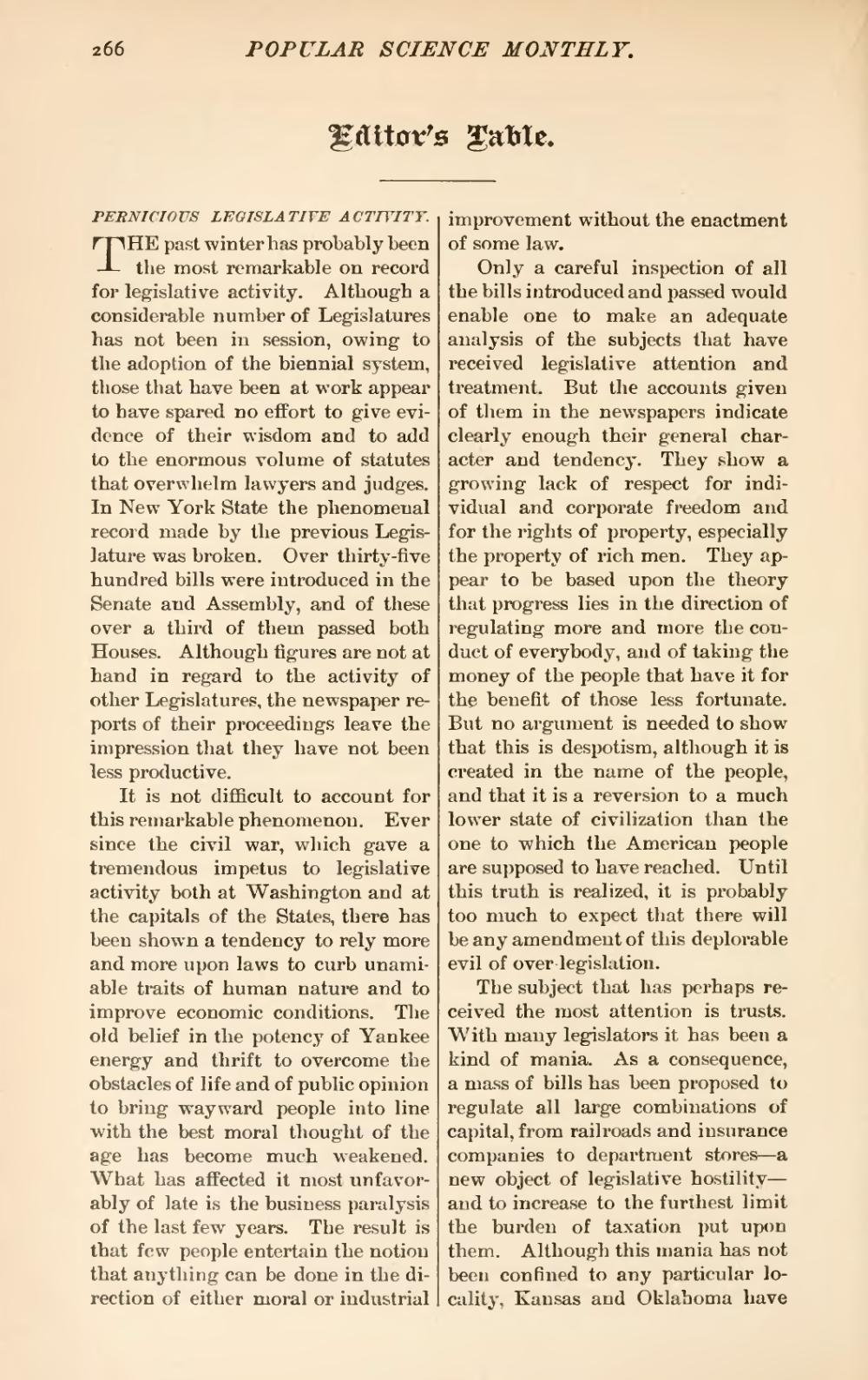PERNICIOUS LEGISLATIVE ACTIVITY
THE past winter has probably been the most remarkable on record for legislative activity. Although a considerable number of Legislatures has not been in session, owing to the adoption of the biennial system, those that have been at work appear to have spared no effort to give evidence of their wisdom and to add to the enormous volume of statutes that overwhelm lawyers and judges. In New York State the phenomenal record made by the previous Legislature was broken. Over thirty-five hundred bills were introduced in the Senate and Assembly, and of these over a third of them passed both Houses. Although figures are not at hand in regard to the activity of other Legislatures, the newspaper reports of their proceedings leave the impression that they have not been less productive.
It is not difficult to account for this remarkable phenomenon. Ever since the civil war, which gave a tremendous impetus to legislative activity both at Washington and at the capitals of the States, there has been shown a tendency to rely more and more upon laws to curb unamiable traits of human nature and to improve economic conditions. The old belief in the potency of Yankee energy and thrift to overcome the obstacles of life and of public opinion to bring wayward people into line with the best moral thought of the age has become much weakened. What has affected it most unfavorably of late is the business paralysis of the last few years. The result is that few people entertain the notion that anything can be done in the direction of either moral or industrial improvement without the enactment of some law.
Only a careful inspection of all the bills introduced and passed would enable one to make an adequate analysis of the subjects that have received legislative attention and treatment. But the accounts given of them in the newspapers indicate clearly enough their general character and tendency. They show a growing lack of respect for individual and corporate freedom and for the rights of property, especially the property of rich men. They appear to be based upon the theory that progress lies in the direction of regulating more and more the conduct of everybody, and of taking the money of the people that have it for the benefit of those less fortunate. But no argument is needed to show that this is despotism, although it is created in the name of the people, and that it is a reversion to a much lower state of civilization than the one to which the American people are supposed to have reached. Until this truth is realized, it is probably too much to expect that there will be any amendment of this deplorable evil of over legislation.
The subject that has perhaps received the most attention is trusts. With many legislators it has been a kind of mania. As a consequence, a mass of bills has been proposed to regulate all large combinations of capital, from railroads and insurance companies to department stores—a new object of legislative hostility—and to increase to the furthest limit the burden of taxation put upon them. Although this mania has not been confined to any particular locality, Kansas and Oklahoma have
